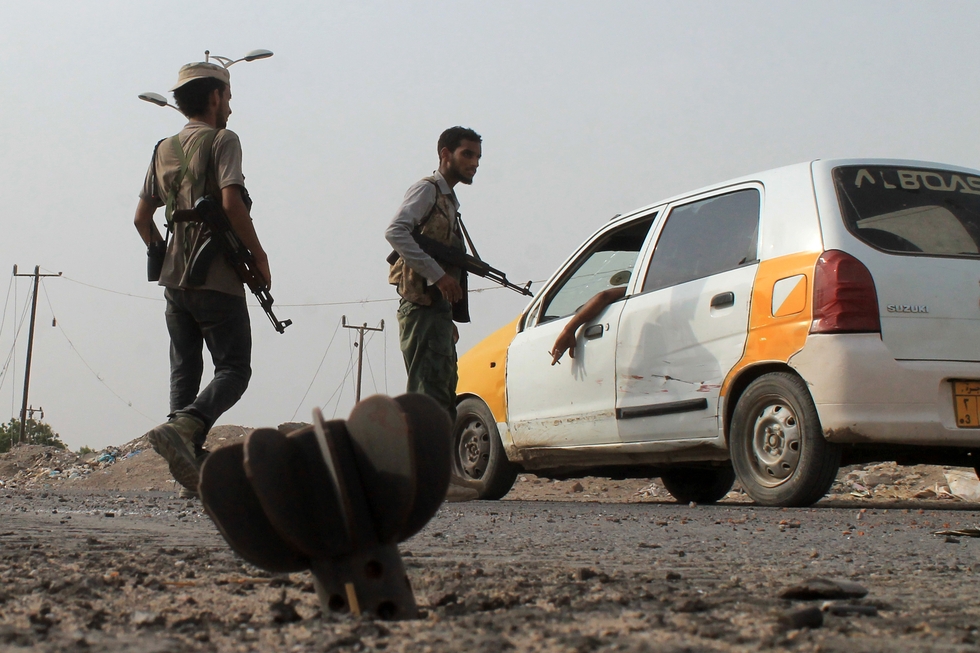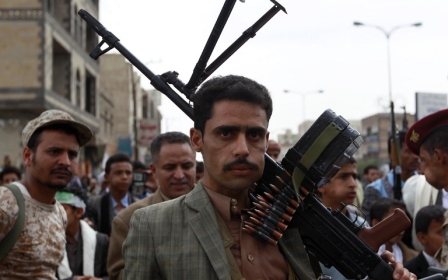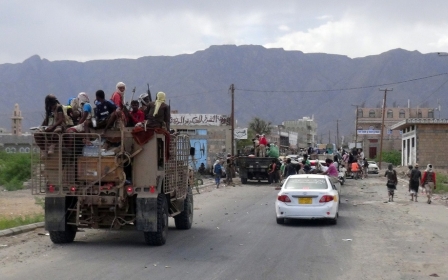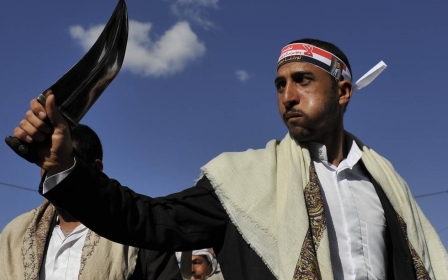Red Cross warns of abandoned corpses in war-torn Yemen

The International Committee of the Red Cross said on Tuesday that it was "extremely concerned" by an increase in corpses left abandoned in Yemen's war zones.
"With the escalation of the fighting, more casualties are being left behind owing to the increased danger associated with retrieving the wounded and the dead," said Nourane Houas, head of the ICRC's Protection Department in Yemen.
"International humanitarian law requires that dead bodies be treated properly and with respect," the ICRC said in a statement.
Houas urged all sides in the conflict "to respect the dignity of the dead and to allow their swift recovery, while taking all feasible measures to ensure their proper identification and their handover to the families".
According to traditions within Islam, the predominant religion in Yemen, the dead should be buried the same day whenever possible.
"Failure to identify the dead puts them in the ranks of the missing, and prevents the families from mourning," said Houas.
The ICRC said it has helped retrieve more than 407 dead bodies since March.
Fighting has intensified since then, when a coalition led by Saudi Arabia began a campaign of airstrikes after the Houthis and their allies forced President Abd Rabbuh Mansour Hadi into exile.
The World Health Organization says the conflict claimed 4,345 lives from March up until 5 August.
Half of those killed are civilians, and 80 percent of Yemen's 21 million people need aid and protection, according to UN figures.
Saada's state of emergency
The ICRC's warning came amid reports suggesting that a “state of emergency” had been declared in the northern province of Saada, where the Houthis have traditionally had their stronghold.
Sources in the capital Sanaa told Arabic news site al-Sharq al-Awsat on Tuesday that the group’s leader, Abdel Malik al-Houthi, had ordered local commanders to impose a state of emergency in the province, which has been left devastated by heavy airstrikes.
Middle East Eye spoke to a medical administrator in the province of Saada, where most communication systems have been down for months.
“It’s a very difficult situation here,” said Abdullatif Ali, speaking on a crackly line from Saada City.
“When an airstrike hits, we might hear about it on the news, but communication is almost impossible. It’s even hard for people to find out when their own relatives have been killed.”
Ali also said that the province, the base of a six-year Houthi insurgency against central government forces, is now depopulated, with many local young men having travelled further south to fight.
“Many of them have gone south. There are a lot of worried families – we don’t know how many of these young people have been killed, but we know it is a lot.”
“Because of the situation, we don’t know all the names," he said. "Large numbers of bodies started coming back last month, but [the fighting means] that they have not all been returned."
New MEE newsletter: Jerusalem Dispatch
Sign up to get the latest insights and analysis on Israel-Palestine, alongside Turkey Unpacked and other MEE newsletters
Middle East Eye delivers independent and unrivalled coverage and analysis of the Middle East, North Africa and beyond. To learn more about republishing this content and the associated fees, please fill out this form. More about MEE can be found here.




